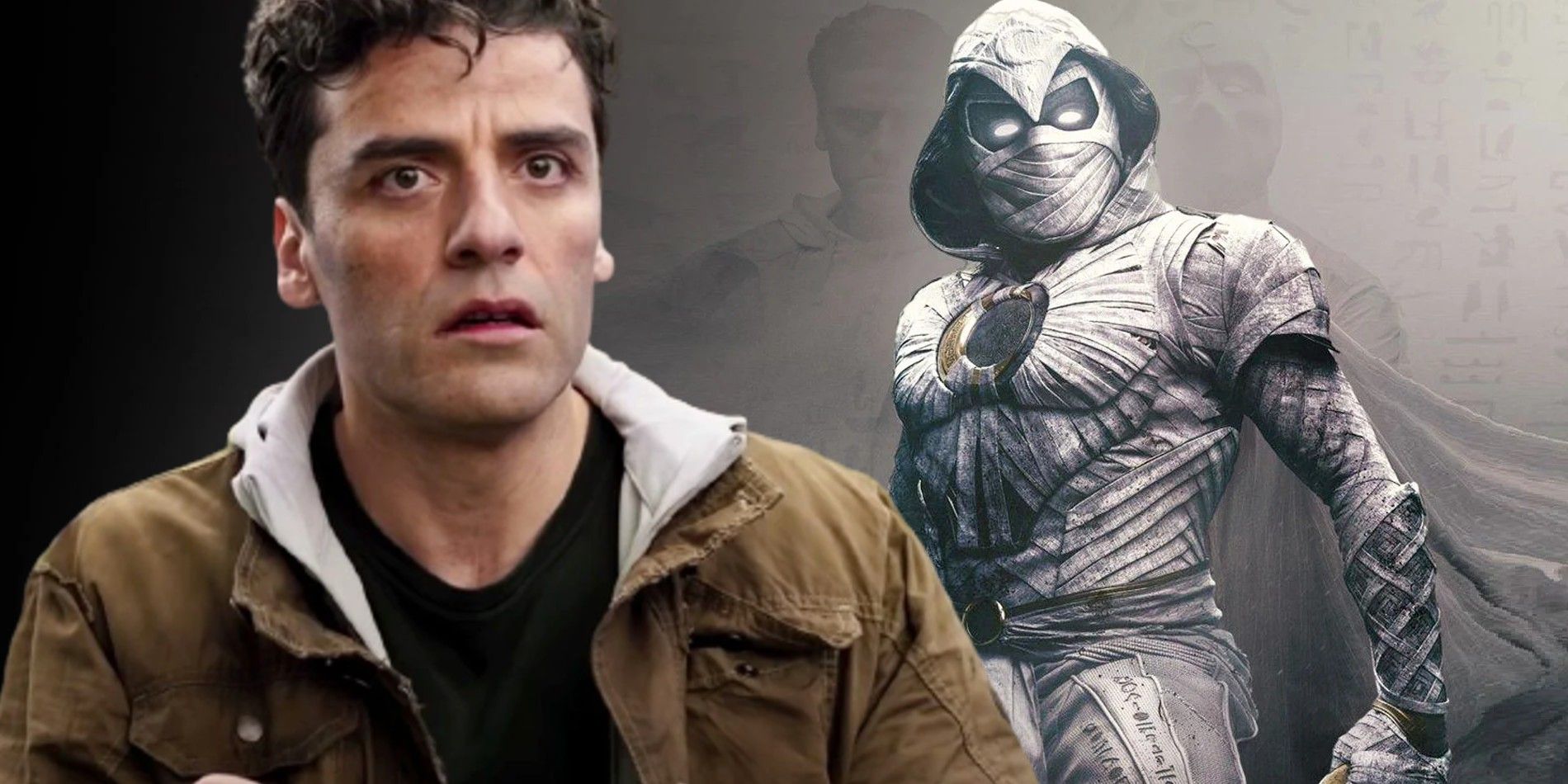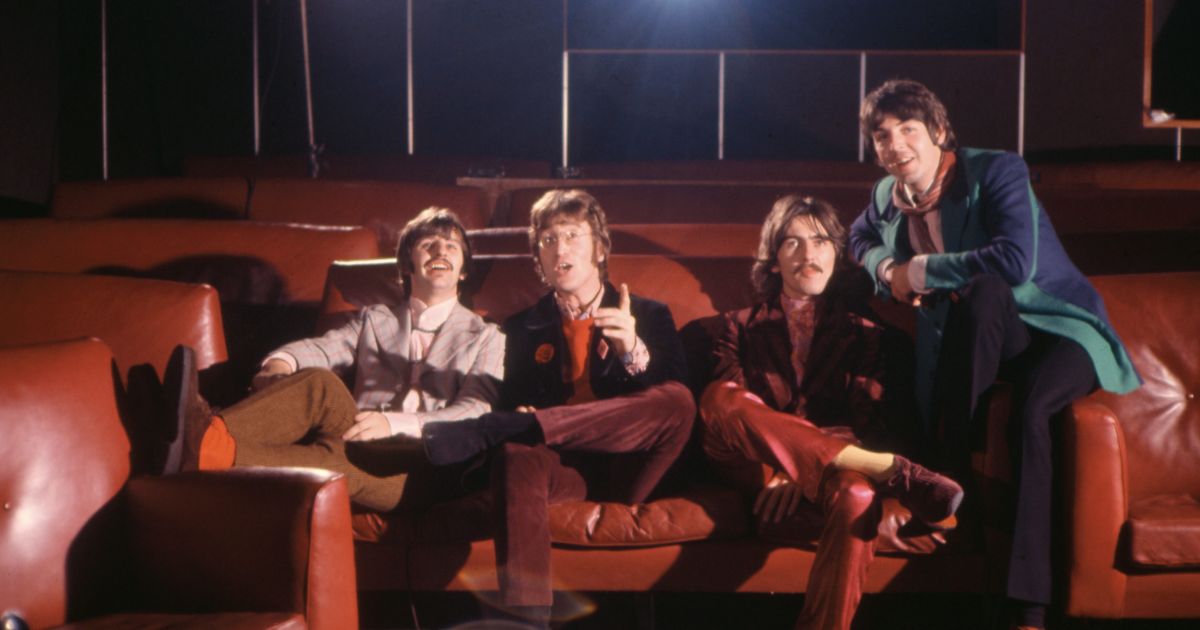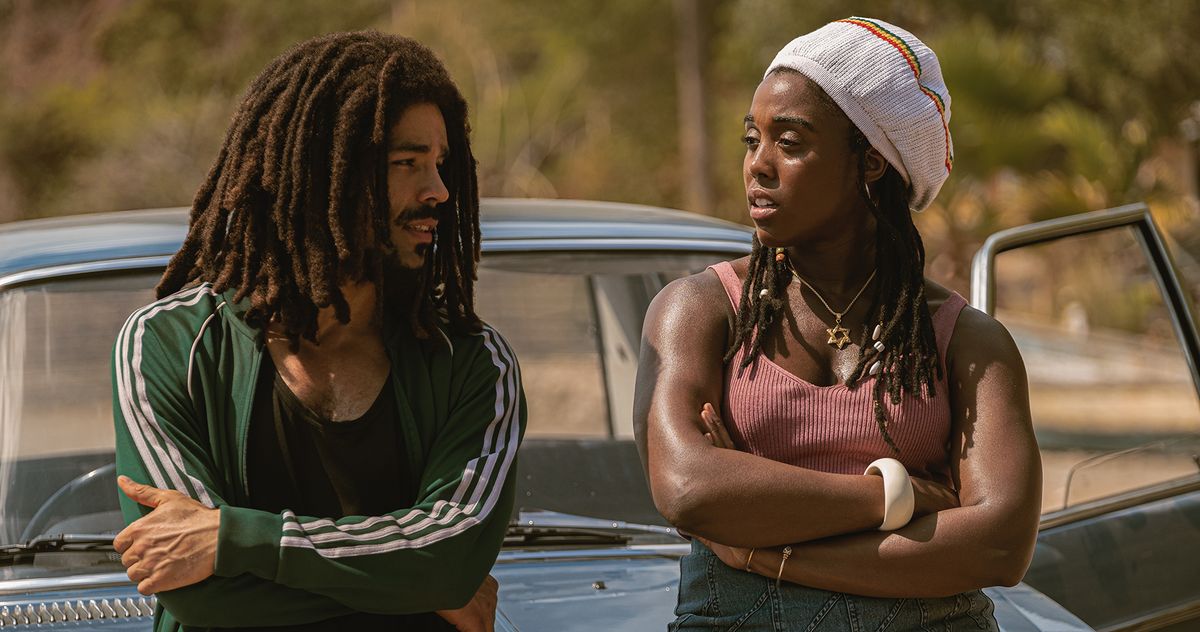Moon Knight’s Ending Proved Oscar Isaac Is Right About His Future

Moon Knight’s Ending Proved Oscar Isaac Is Right About His Future
Following the ending of Moon Knight, Oscar Isaac’s remarks about his character’s future in the Marvel Cinematic Universe have been proven right. Through its six-episode run, Moon Knight established itself as a departure from the other Disney+ MCU shows. Its inclusion of darker themes such as mental health issues and supernatural violence set the series apart from Marvel’s usual offerings. As such, Moon Knight received positive critical reviews, particularly praising its clear detachment from the superhero universe and its core cast’s performances. While this arguably cemented the character’s future within the franchise, Moon Knight’s lead, Oscar Isaac presented a different perspective.
After fleshing out Marc Spector’s traumatic past, the MCU miniseries focused on satisfyingly wrapping up his journey to the afterlife. Meanwhile, Arthur Harrow (Ethan Hawke) exacted his plan of judging humanity through the Egyptian goddess Ammit. Layla El-Faouly (May Calamawy) released Khonshu to aid in Moon Knight’s resurrection while becoming the Egyptian superhero Scarlet Scarab, the avatar of the goddess Taweret. When the dust settled, Marc and his mild-mannered alter Steven Grant proclaimed they would stop serving Khonshu, deciding instead to live in perfect harmony. Unsurprisingly, Moon Knight revealed in its post-credits scene that Marc — through his third, more ruthless alter, Jake Lockley — remained Khonshu’s avatar.
Naturally, because of the positive reception towards the show, Oscar Isaac weighed in on his character’s future within the MCU. For him, the thought of creating more Moon Knight content “doesn’t matter so much,” as he was already content with the Disney+ series’ pace and quality of storytelling. Moon Knight’s conclusion subsequently proved Isaac right, as its standalone nature granted the character flexibility on where he could go next. Instead of setting up the franchise’s future, Moon Knight took on a new hero and gave justice to his arc in an insular, satisfying way. As a result, Marc and Steven have a promisingly ambiguous future ahead, aside from a possible Moon Knight season 2. They could easily continue to a major feature film, appear alongside other characters, or disappear entirely for the next phase.

By the time Moon Knight’s finale aired, the titular hero’s fate was still hanging in the balance. Initially, Kevin Feige conveyed interest in continuing Moon Knight’s story by crossing over to MCU films, but Isaac revealed that his contract with Marvel would end with the show and that he had not yet signed on for more projects. Nevertheless, the series’ producers shared their vision of Moon Knight staying in the MCU for the next decade and their hope for creating a potential second season — a proposal backed by Isaac, Calamawy, and Hawke themselves.
In the past, the studio insisted on offering their actors multi-project contracts, guaranteeing the survival of their characters, at the very least. However, as Marvel develops its Phase Four movies and moves forward with its grand expansion plans, it has deviated from such practice; instead, it hands out limited deals, leaving even the actors wanting more. Fortunately for Moon Knight, Oscar Isaac’s foresight also highlights his character’s unparalleled flexibility regarding his MCU future.
Related News & Content
-

Use wp.media templates to create totally custom modal
Use wp.media templates to create totally custom modal,Following up on this answer I'm trying to determine how to create a modal with completely unique menu items/content than the media modal. If you add a new state you can add a new menu tab and hav... Tags: media modal stackexchange.com WordPress Development Stack Exchange -

Get post by tag
Get post by tag,I want to get several post by tag. So I try to use get_posts() function: <?php $args = array( 'numberposts' => '3', 'post_status' => 'publish', 'tag' => 'travel' ); $ Tags: functions posts query posts stackexchange.com WordPress Development Stack Exchange -

Elementor + ACF: How to insert dynamic JSON-LD formatted code into ACF field without sanitizing the script tag?
Elementor + ACF: How to insert dynamic JSON-LD formatted code into ACF field without sanitizing the script tag?,On a normal website, I am able to add JSON-LD structured data, such as below, into a Elementor HTML widget, in a proper way. However, as soon as I insert JSON-LD format into an ACF field (Textarea)... Tags: advanced custom fields php stackexchange.com WordPress Development Stack Exchange -

Gutenberg InnerBlocks noallowedblocks on parent but allowedblock on Child
Gutenberg InnerBlocks noallowedblocks on parent but allowedblock on Child,This is a continuation of the following post: Custom Gutenberg block with nested InnerBlocks renderAppender not displaying add button I solved one problem but created a different problem. I'm recr... Tags: block editor plugin development stackexchange.com WordPress Development Stack Exchange -

Delay Issue: Using Wget with JSON Endpoint – Need Help Understanding Headers
Delay Issue: Using Wget with JSON Endpoint – Need Help Understanding Headers,On a WooCommerce website, I have a REST endpoint created with register_rest_route that returns a JSON response. To perform a routine with a certain frequency and urgency, I have added this instruct... Tags: rest api stackexchange.com WordPress Development Stack Exchange -

How do I change top header background color
How do I change top header background color,Please refer to website: https://virginiafrank.com I cannot get the top header background color (or phone numbers) to change color. I would prefer the background gold and text black. I can't make t... Tags: headers stackexchange.com WordPress Development Stack Exchange -

How to display the_tags() as plain text
How to display the_tags() as plain text,the_tags by default is displaying as URL. I need to display it as plain text to insert inside HTML attribute. <?php $tag = the_tags(''); ?> <div class="image-portfolio" data-section... Tags: stackexchange.com tags WordPress Development Stack Exchange -

Give to site admin the option to "skip confirmation email" when adding new user
Give to site admin the option to "skip confirmation email" when adding new user,in wordpress multisite when we give to site admin the option to add new users, site admin dont have the "checkbox" to add the new user without sending the user email with link activation (see the Tags: email verification multisite stackexchange.com users WordPress Development Stack Exchange -
Facing Hamas and Tehran, Israel is left with only vengeful madness | Opinion
Facing Hamas and Tehran, Israel is left with only vengeful madness | Opinion,Despite the Terrible Disaster on October 7, and the Failures It Exposed, Israel Is Still Convinced That the Image of the Mad Man Will Ensure Its Security -

Tom Hanks to Narrate Masters of the Air Companion Doc, The Bloody Hundredth
Tom Hanks to Narrate Masters of the Air Companion Doc, The Bloody Hundredth,Apple TV+ has announced The Bloody Hundredth, a companion documentary to Masters of the Air narrated by Tom Hanks. It premieres on March 15th. Tags: consequence.net Keycat Keytags -

Benson Boone Eyes Second Week at No. 1 In U.K. With ‘BeautifulThings’
Benson Boone Eyes Second Week at No. 1 In U.K. With ‘BeautifulThings’,Olivia Rodrigo is on track for the week's highest debut with "Obsessed." Tags: billboard.com Keycat Keytags -

West Virginia Gov. Justice vetoes bill that would have loosened school vaccine policies
West Virginia Gov. Justice vetoes bill that would have loosened school vaccine policies,West Virginia Republican Gov. Jim Justice broke with the GOP-majority Legislature to veto a bill that would have loosened one of the country’s strictest school vaccination policies Tags: 108569448 abcnews.go.com Article Children General news Health Immunizations Keycat Keytags Medication Politics U.S. News -

Blondshell and Bully Team Up For New Single “Docket”
Blondshell and Bully Team Up For New Single “Docket”,Blondshell has teamed up with Alicia Bognanno of Bully for the newly released single "Docket." Listen to the track here. Tags: Keycat Keytags pastemagazine.com -

Toyota’s Super Bowl Ad Relies on Car Challenges, Not Famous Faces
Toyota's Super Bowl Ad Relies on Car Challenges, Not Famous Faces,Toyota decided just weeks ago to run a Super Bowl commercial, and is betting on a spot that has no celebrities or special effects. Tags: Keycat Keytags Super Bowl Commercials Toyota variety.com -

Release the Beatles Jerk-off Cut
Release the Beatles Jerk-off Cut,Sam Mendes is making four Beatles movies, one for each Beatle. But if none of the movies include the legendary story of John and Paul’s days of group masturbation, Mendes will have blown his wad for naught. Tags: Keycat Keytags vulture.com -

There’s a Great Movie to Be Made About Bob Marley’s Story. One Love Is Not It.
There’s a Great Movie to Be Made About Bob Marley’s Story. One Love Is Not It.,Walking away from ‘Bob Marley: One Love,’ you may feel you know less about the great musician than you did going in. Tags: Keycat Keytags vulture.com -

A24 Reveals I Saw the TV Glow Trailer, Announces Star-Studded Soundtrack
A24 Reveals I Saw the TV Glow Trailer, Announces Star-Studded Soundtrack,A24 has shared the trailer for the upcoming horror film I Saw the TV Glow and announced the soundtrack with Phoebe Bridgers, Alex G, and Caroline Polachek,. Tags: consequence.net Keycat Keytags -

Carol Kirkwood stuns in figure-hugging dress amid BBC Breakfast technical chaos
Carol Kirkwood stuns in figure-hugging dress amid BBC Breakfast technical chaos,CAROL Kirkwood stunned in a figure-hugging dress amid a technical blunder. BBC Breakfast was flung into chaos this morning after a string of sound issues. However Carol, 61, was all smiles as she p… Tags: BBC BBC Breakfast BBC ONE Carol Kirkwood mirror.co.uk The Scottish Sun TV News TV UK daytime TV -

Families ‘to sue prison’ where loud inmates ‘terrorise kids’ with screaming
Families 'to sue prison' where loud inmates 'terrorise kids' with screaming,Residents living next door to a new prison who say their kids have to sleep wearing headphones and some leave during weekends due to the racket are threatening to sue the prison service Tags: mirror.co.uk Neighbours from hell prisons Scottish government The Mirror -

Doctor Strange’s Secret Wars Role May Be More Important Than You Thought – Looper
Doctor Strange's Secret Wars Role May Be More Important Than You Thought - Looper,According to entertainment leaker Alex Perez, Doctor Strange will find himself confronting his inner struggles as he headlines "Avengers: Secret Wars." Tags: Fiction Looper looper.com Marvel Cinematic Universe Science Star Wars The Universal Monsters franchise -

‘It’s too revealing for a wedding’ people say as guest shares her dress with cut-outs & plunging neckline
‘It’s too revealing for a wedding’ people say as guest shares her dress with cut-outs & plunging neckline,A WOMAN has been mocked after sharing the summer dress she was considering wearing to nuptials. Attending someone’s big day can be just as stressful as organising the wedding ceremony –… Tags: Body Shapes events and attractions personal celebrations and life events style and fashion The Sun the-sun.com wedding Wedding Dresses Weddings womens clothing womens fashion -

Carl Weathers dead at 76: Rocky and Happy Gilmore actor mourned by family after dying ‘peacefully in his sleep’
Carl Weathers dead at 76: Rocky and Happy Gilmore actor mourned by family after dying ‘peacefully in his sleep’,ACTOR Carl Weathers has died at 76. Weathers, whose career spanned film and television, action and comedy, is best known for his role as Apollo Creed in the Rocky franchise, as well as his performa… Tags: Celebrity Celebrity Deaths cinemas and events comedy tv events and attractions Movies Pop Culture Showbiz Television The Sun the-sun.com -

‘What Jennifer Did’: Netflix doc explores shocking Ont. murder-for-hire case
'What Jennifer Did': Netflix doc explores shocking Ont. murder-for-hire case,Most of Jennifer Pan's entire life was made up of lies. When her parents began to catch on, she decided to bring in hired hitmen. Tags: Crime Entertainment Global News globalnews.ca Jennifer Pan jennifer pan now Trending What jennifer did what jennifer did netflix -

What’s behind the lack of enthusiasm for this year’s music festivals?
What's behind the lack of enthusiasm for this year's music festivals?,The public sentiment about this year's crop of music festivals is an overwhelming "meh." There are good reasons for this. Tags: Coachella Entertainment glastonbury Global News globalnews.ca lollapalooza Music festivals News -

Would you be happy as a long-term single? The answer may depend on your attachment style
Would you be happy as a long-term single? The answer may depend on your attachment style,Single and insecure? Not necessarily! New research shows attachment styles play a big role. Secure singles are happy & have strong social lives. Insecure singles (anxious, avoidant, fearful) struggle more. The good news: attachment styles can change! Supportive relationships can help build security and happiness. Tags: Amazon anxious attachment Attachment styles attachment theory attachmenttheory avoidant attachment Canada fearful attachment happiness indianexpress.com lifestyle Relationships secure attachment self esteem Single People singlehood on the rise Social psychology The Indian Express tiktok well being -

Kayani Bakery seeks closure of complaint on online scam after Google takes off fraudulent listing
Kayani Bakery seeks closure of complaint on online scam after Google takes off fraudulent listing,On January 19, The Indian Express had first reported on how cyber frauds mimicked the website of Kayani Bakery and created a fraudulent Google listing in the bakery’s name to perpetrate a major scam. Tags: indianexpress.com Kayani Bakery Kayani Bakery Pune kayani bakery scam Pune Pune cyber scam Pune google scam Pune scam Pune top news The Indian Express
Warning: file_get_contents(https://www.scienceradars.com/wp-output-content.php?pg=1&cat=&kw=&lvl=): Failed to open stream: HTTP request failed! HTTP/1.1 526 in /home/wwwroot/xuenou.com/wp-content/themes/chromenews/template-parts/content.php on line 169
Warning: file_get_contents(https://www.bayuexiang.com/wp-output-content.php?pg=1&cat=&kw=&lvl=): Failed to open stream: HTTP request failed! HTTP/1.1 526 in /home/wwwroot/xuenou.com/wp-content/themes/chromenews/template-parts/content.php on line 173
TrendRadars
The Most Interesting Articles, Mysteries and Discoveries

















































































